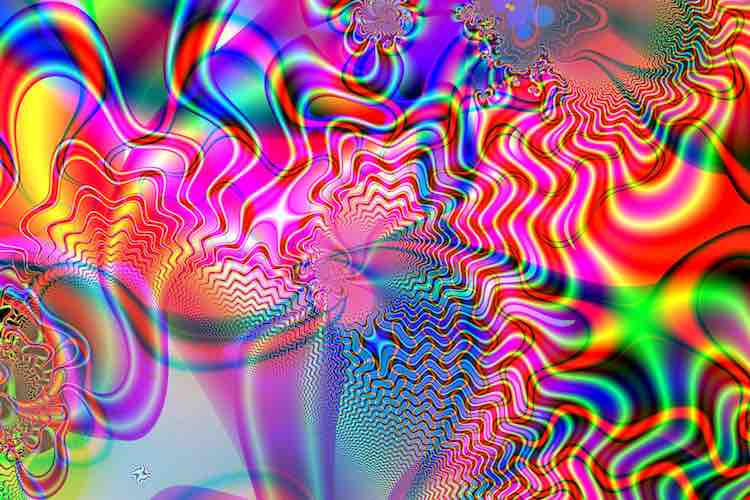The effects of any drug (including hallucinogens) vary from person to person. How hallucinogens affect a person depends on many things, including their size, weight and health, also whether the person is used to taking it and whether other drugs are taken around the same time.
The effects of any drug also depend on the amount taken. This can be very hard to judge as the quality and strength of illicit drugs can vary greatly from one batch to another.
There is no safe level of drug use. Use of any drug always carries some risk – even medications can produce unwanted side effects. It is important to be careful when taking any type of drug.
Immediate effects
The effects of hallucinogens can last several hours and vary considerably, depending on the specific type of hallucinogen. Some of the typical effects of hallucinogens are:
- feelings of euphoria;
- blurred vision;
- sense of relaxation and well-being;
- hallucinations and distorted perception, including visual, auditory, body, time and space;
- disorganised thoughts, confusion and difficulty concentrating, thinking or maintaining attention;
- anxiety, agitation, paranoia and feelings of panic;
- dizziness;
- blurred vision;
- loss of coordination;
- increased breathing rate;
- increased heart rate and blood pressure;
- irregular heartbeat, palpitations;
- nausea and vomiting;
- increased body temperature and sweating, may alternate with chills and shivering;
- numbness.
‘Bad trips’
Sometimes a person may experience the negative effects of hallucinogens and have what is called a bad trip. They may experience some of the following:
- unpleasant and/or intense hallucinations
- paranoia
- anxiety
- panic or fear.
Feelings of panic, paranoia and fear can lead to risky behaviour that can cause injury, such as running across a busy street.
Some people may experience a drug induced psychosis after using hallucinogens. This can occur after a single dose or long-term use. The psychosis is usually characterised by hallucinations, delusions and bizarre behaviour and can last for several hours or longer for some people.
Higher doses
High doses of hallucinogens can increase the negative immediate effects.
Death from an overdose of LSD, magic mushrooms and mescaline are extremely rare. A high dose of hallucinogen can cause a person to overdose. This means that a person has taken more hallucinogen than their body can cope with. Not knowing the strength or purity of the hallucinogen increases the risk of overdose.
Deaths generally occur due to suicide, accidents and dangerous behaviour, or due to the person inadvertently eating poisonous plant material. An overdose of PCP or ketamine can result in depressed breathing, coma, convulsions, seizures and death.
Coming down
As the effects of the hallucinogen begin to wear off a person may experience a range of effects. These effects can last for a number of days after use and may include:
- depression
- anxiety
- panic attacks
- psychosis
Long-term effects
The most common long-term effect of hallucinogen is the ‘flashback’. Flashbacks are a re-experience of the drug and can occur days, weeks, months and even years later.
Flashbacks can be triggered by the use of other drugs, or by stress, fatigue or physical exercise. The flashback experience can range from being pleasant to causing severe feelings of anxiety. They are usually visual and last for a minute or two.
Other effects of hallucinogen use
Social problems
All areas of a person’s life can be affected by drug use.
- Disagreements and frustration over drug use can cause family arguments and affect personal relationships.
- Legal and health problems can also add to the strain on personal, financial and work relationships.
Taking hallucinogens with other drugs
The effects of mixing hallucinogens with other drugs, including alcohol, prescription medicines and over the counter medicines, are often unpredictable.
Mixing hallucinogens with stimulant drugs (such as cocaine or amphetamines) increases the stimulant effects and can further increase the heart rate and place the body under extreme stress.
Combining hallucinogens with depressant drugs such as alcohol may further reduce coordination and increases the chances of vomiting.

